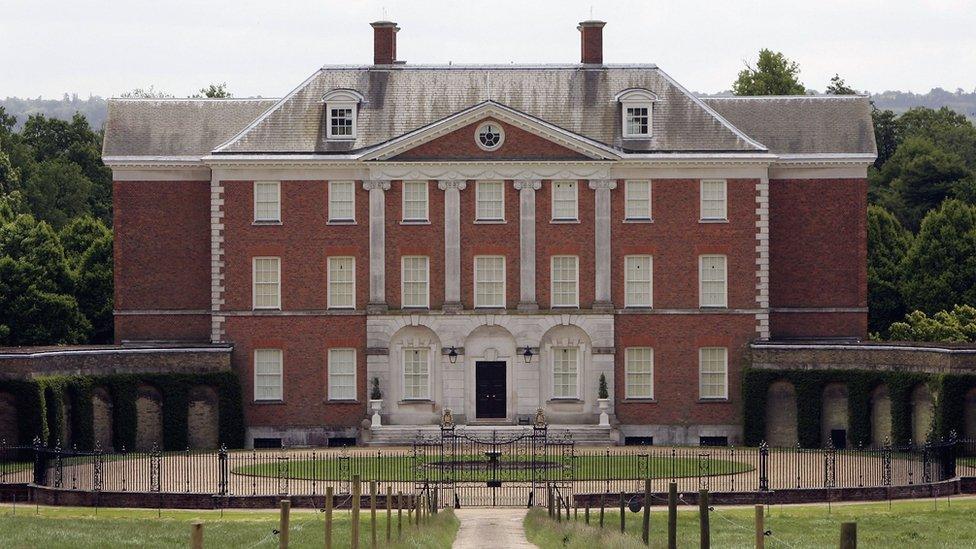Brexit: EU nationals with permanent residence 'can stay in UK'
- Published
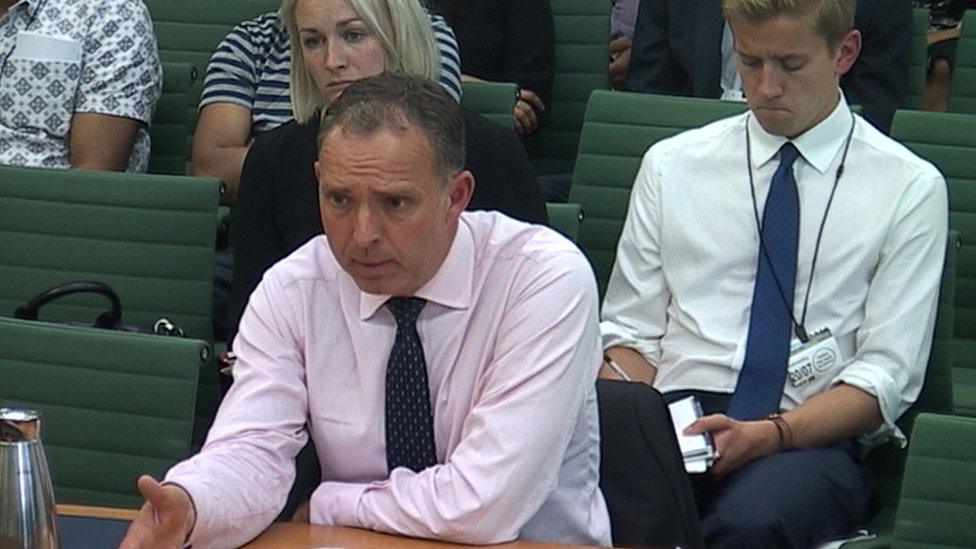
Mr Sedwill said the rights of permanent residents were written into law and other conventions
EU nationals with a right to permanent residence can stay in the UK after it leaves the EU and enjoy the same rights, a top civil servant has said.
Mark Sedwill said the rights of those granted residence after five years were "quite clear" in law and it amounted to a guarantee of their future status.
But he told MPs the rights of other EU nationals were subject to negotiations on Brexit and the "will of Parliament".
Ministers have been urged not to use EU citizens as "bargaining chips".
The UK says it will seek curbs on free movement rules - which currently give EU nationals the right to live and work in other member states - as part of its EU exit deal but it is unclear how this will work and what implications it will have for EU nationals already in the UK.
The government has declined to give a firm guarantee about the status of EU nationals currently living in the UK, saying this is not possible without a reciprocal pledge from other EU members about the millions of British nationals living on the continent.
'Inflection point'
Appearing before the Home Affairs Select Committee, Mr Sedwill - who is the top official at the Home Office - was pressed on the issue and recent remarks by David Davis, the minister in day-to-day charge of EU exit, that there could be a cut-off point after which EU nationals arriving in the UK were not guaranteed the right to stay.
In response to questioning by committee chair Keith Vaz, Mr Sedwill said EU nationals in the UK could be sure that their rights would be protected until the moment the UK leaves the EU and there would be "no knock on the door" telling them that they had to leave.
But he said the entitlements of existing EU nationals after Brexit - such as their right to work, to be paid benefits and use the NHS - would be subject to the outcome of the UK's negotiations while the legal status of people who arrived in the UK after EU exit would clearly be different.
"What Mr Davis was trying to address was that if there is a surge, might there need to be as part of that eventual package an inflection point between now and that date at which we say 'people before have one set of entitlements, people after that date have a different set of entitlements'," he said.
"It is quite clear after we leave the entitlements change - the question is what happens between now and then."
Mr Sedwill added: "It will be determined by the negotiations exactly what entitlements an EU citizen who arrives after the UK leaves the EU has. It could be the same as we might offer to an American. It could be different."
But he told MPs a specific distinction should be drawn between EU citizens who had obtained permanent right to residence by virtue of living in the UK for five years and everyone else.
'Rumours spreading'
He said both former prime minister David Cameron and ex-immigration minister James Brokenshire, who is now Northern Ireland secretary, had said they could not conceive of a situation where permanent residents - whose eligibility is based on a five-year continuous period of residence and other factors, external - were stripped of their rights retrospectively.
"People have got that right of permanent residence and that right is associated with other international treaties that the UK is members of such as human rights legislation under the human rights act," he said. "It is under EU law at the moment but it is a right the UK respects."
Asked why the UK did not just give a firm guarantee to those in such a situation, he replied: "I think for people who have the five-year residence, we have in effect had a guarantee".
"It is not for me to do so (give a personal guarantee) but in the end Parliament does. It is set out in law. The current law it is clearly the case."
Amid concerns about the preparedness of Whitehall for the process of negotiating EU exit, Mr Sedwill said the Home Office had agreed to deploy a handful of top civil servants to work in Mr Davis's new Brexit department.
Earlier, the Romanian Ambassador to the UK said more must be done to reassure EU nationals they could continue to live in the UK despite the vote to leave the EU.
Dan Milhalche told MPs "rumours were spreading" that foreign nationals, particularly unskilled workers, may no longer be welcome and he said these fears must be addressed in a "calm and rational" way.
If the UK wanted to impose a right-to-stay "cut-off date", Mr Milhalche said it should be negotiated within the structure of existing EU Treaties or as part of a new agreement with the other 27 member states.
But he said he would be "cautious" about claims that a cut-off date could lead to a surge of people from Romania and other countries coming to the UK, saying similar suggestions in 2014 that the lifting of restrictions on Romanians and Bulgarians from seeking work in the UK would lead to a mass influx "had not been proven".
- Published19 June 2016
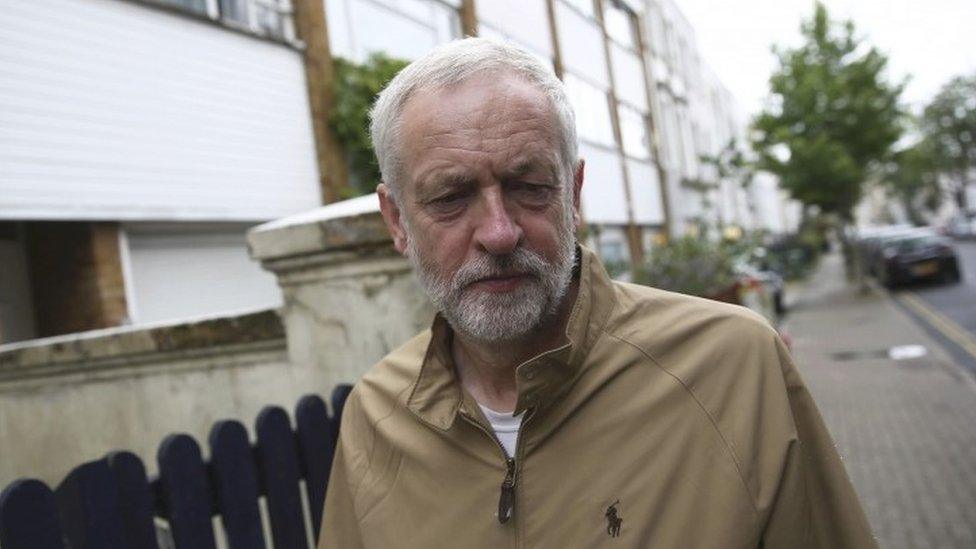
- Published17 July 2016
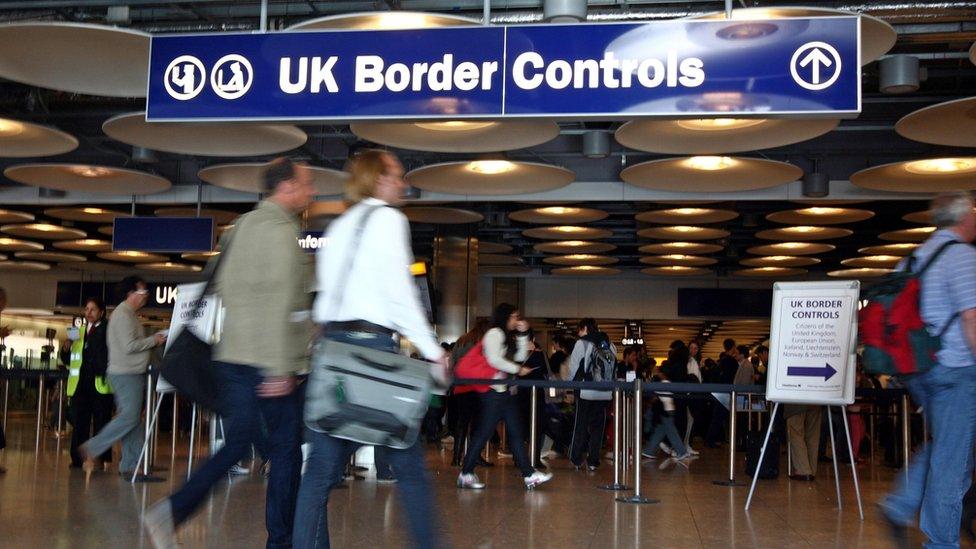
- Published15 July 2016
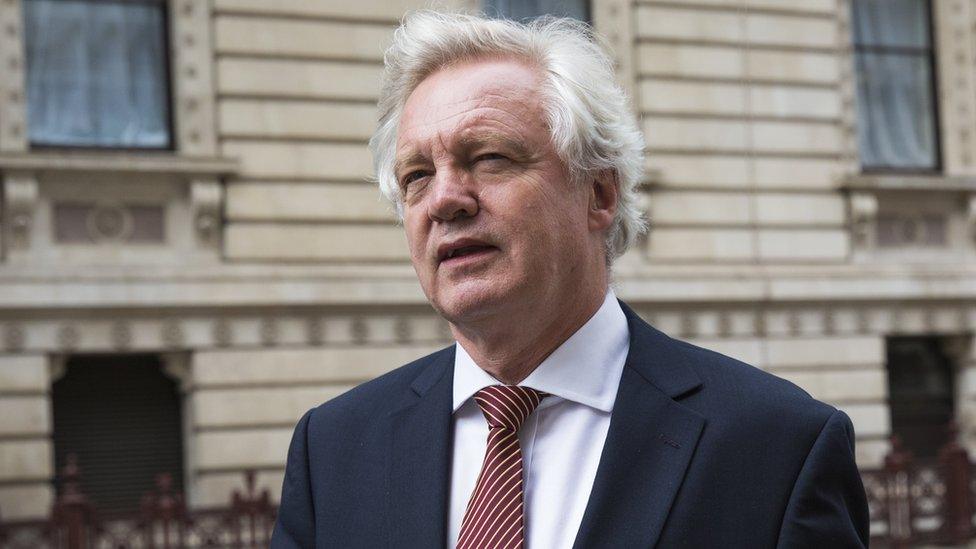
- Published18 July 2016
